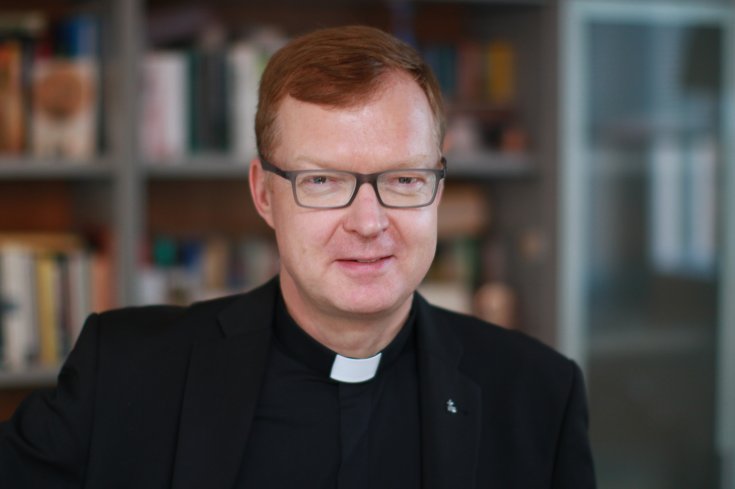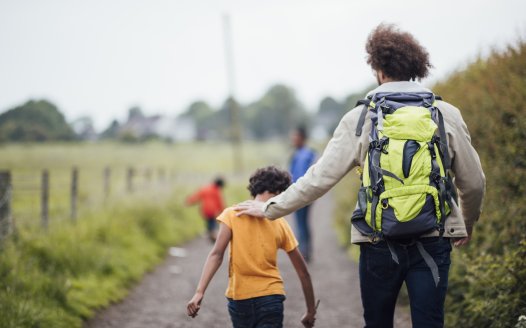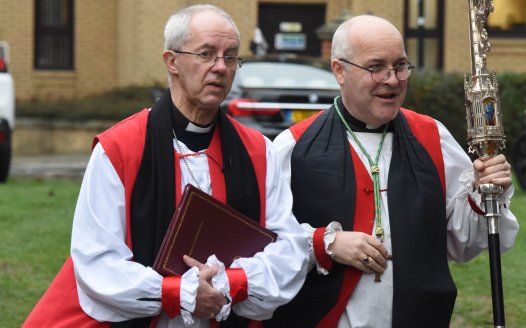Why are safeguarding experts fleeing the Catholic Church?
Posted: Tue, 11th Apr 2023 by Keith Porteous Wood
Experts appointed to tackle abuse in the Catholic Church are quitting their roles. Keith Porteous Wood says this demonstrates the dire mess the Church is in – and that justice can only be secured if secular authorities play their part in holding the Church to account.
Professor Hans Zollner, regarded as "one of the greatest experts" on clerical abuse in the Catholic Church and an "ambassador for safeguarding", has resigned from the Pontifical Commission for the Protection of Minors, despite his term of office still having two years to run.
This Commission was set up to advise the Pope on "the most opportune initiatives for protecting minors and vulnerable adults" and "to promote local responsibility in the particular churches".
Zollner (pictured) was appointed in 2014 by the Pope as one of the Commission's founding members. He resigned over concerns about the Commission's "responsibility, compliance, accountability and transparency" which every church institution, "let alone the [Commission], is bound to uphold." He also described the financial responsibility and accountability as "inadequate", saying it was "crucial that the Commission clearly show the use of funds in its work".
To the fury of the Commission's president Cardinal O'Malley, Zollner also went so far as to announce that he wanted to disassociate himself from the Commission because of urgent "structural and practical issues" including the Pope's decision to make the Commission subservient to the Dicastery for the Doctrine of the Faith (DDF), formerly known as the Inquisition. The NSS has criticised the DDF's dubious role over safeguarding over many decades.
Baroness Hollins, who herself has resigned from the Commission, also criticised the DDF move. She considers it "anomalous to put safeguarding commission into the department that deals with allegations against priests given that its brief is to prevent abuse and to address the care and healing of victims/survivors."
Zollner said in his parting statement: "The protection of children and vulnerable persons must be at the heart of the Catholic Church's mission.
"That was the hope I and many others have shared since the commission was first established."
That he uses the past tense suggests he no longer thinks that this role is fulfilled by the Commission, or indeed by the Church as a whole.
That is a view we have long held. If the Church and the Pope took safeguarding seriously, the Pontifical Commission would be a gold standard. Instead it is a laughing stock.
The two abuse victims who were appointed at its inception have long since resigned in disillusionment, or worse. One "in protest" because "there was no collaboration with the Vatican".
The other, Peter Saunders, told me that the Pope showed no interest in the Commission whatsoever. On one day it sat, the Pope spent the whole day observing coffins being filed past him as some sort of commemoration, rather than attend the Commission's deliberations.
More recently there have been reports of the Commission running out of money so it could operate only on a skeleton basis, although the Vatican is known to have great wealth. Surely the Pope of all people would be the first to access to these funds, if he had the slightest interest in doing so. But on past performance, I doubt he has.
Instead the Commission has had to resort to hand outs from the Italian Bishops Conference. This body refuses all calls to institute a comprehensive independent inquiry of clerical abuse in Italy. It would be naïve to believe that their money will come without strings attached. It is not difficult to see why Zollner has thrown in the towel.
Baroness Hollins described Zollner "as a man of integrity [who] tells it how it is." In the whole of the Catholic Church, Zollner has been the only person of influence I have trusted during my work on clerical abuse of minors and he knew only too well of the many shortcomings, but had no power to even start to remedy them.
So where does that leave the Church on clerical abuse? In my view, incapable and unwilling to police itself on clerical abuse or to compensate victims fairly. It is a worldwide institution where criminality is endemic. And all too often civil authorities, even for example in supposedly secular France, give Church criminality a free pass.
The root cause of such abuse is the unchallengeable power of the hierarchy, or "clericalism". Pope Francis also accepts this, but is doing little if anything to limit it.
The most extreme example of this clericalism has been the hierarchy's refusal, on Francis' watch and presumably therefore with his agreement, to uphold the Vatican's obligations under the UN Convention of the Rights of the Child beyond the confines of the minuscule Vatican City State. It does so on the disingenuous pretext that it lacks the "capacity or legal obligation to impose the [obligations of the Convention] upon the local Catholic churches and institutions present on the territory of other States", despite the Pope's absolute power to appoint and dismiss bishops at will.
So, we have this massive worldwide organisation that is a law unto itself in which inquiry after inquiry confirms that sexual abuse of minors and vulnerable adults continues on a significant scale.
The only hope I can see of any improvements from within come from the growing calls for "synodality", for the laity to play a much greater role church governance, thereby limiting clericalism. The Church in Germany is leading the way on this and even considering changes to doctrine on homosexuality and celibacy in defiance of the Vatican. The synodical movement has been fuelled in part by the need to find a way to reverse the fast-emptying pews. But for such a movement to take hold on a significant proportion of the church will take decades or centuries.
So how else abuse in the church be tackled? There must be action from those outside the Church, as well as within.
First, the public and media can put pressure on state's justice and police to act decisively, without deference to religion, in rooting out abuse. This includes calling for independent state lawyer-led inquiries into clerical abuse, and NGOs submitting evidence to the Committee on the Rights of the Child about abuse on a country by country basis. NGOs should also publicise their findings to put pressure on member states to remedy shortfalls in their response to clerical abuse.
Second, statutes of limitation on criminal abuse and civil claims must be maximised or eliminated. This was one of the recommendations made by the Independent Inquiry into Child Sexual Abuse in England last year.
Finally, we must ensure that every state has a well-designed mandatory reporting law for abuse of minors that carries a criminal sanction.
We may already be seeing progress on the last point. Just last week, the home secretary announced a plan to introduce a legal requirement to report child sexual abuse in England. We'll be scrutinising these plans to ensure they are effective and do not make any concessions to religion – for example, it is crucial that, as in Australia, there are no exemptions for disclosure in the confessional.
What's more, the massive publicity over clerical abuse over many decades has reduced clerics' overbearing power over minors. Abusers any longer take it for granted that victims' accusations will not be believed.
There is still a long way to go to secure justice for victims and survivors of abuse in the Catholic Church. But as these developments demonstrate, pressure must come from states and the United Nations, as little can be expected from the Church.
While you're here
Our news and opinion content is an important part of our campaigns work. Many articles involve a lot of research by our campaigns team. If you value this output, please consider supporting us today.








